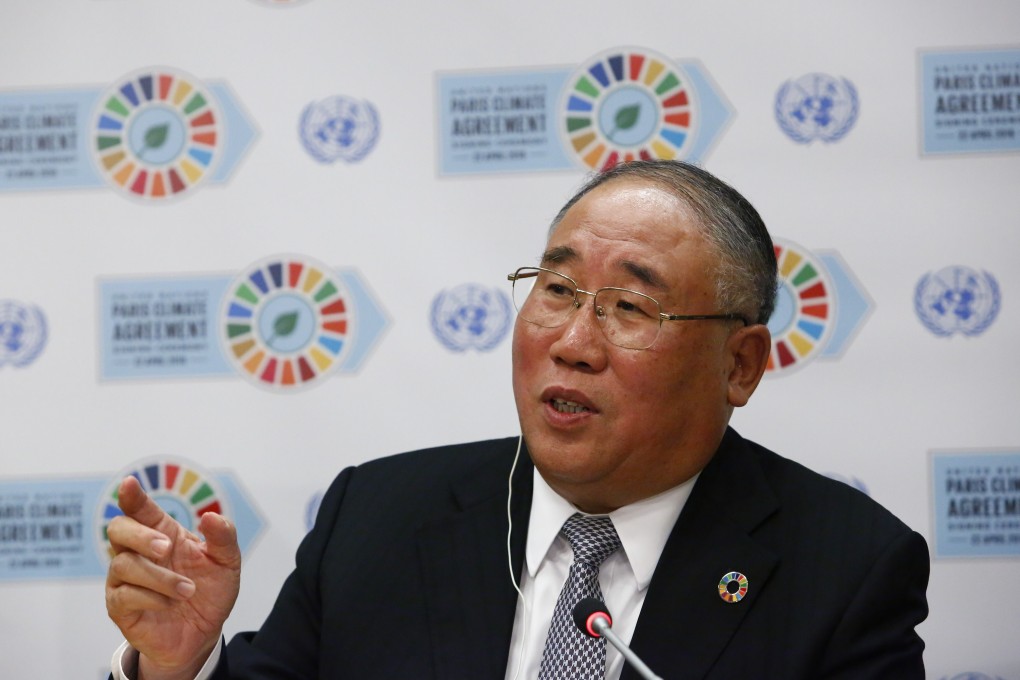Climate change: World should focus on delivering commitments instead of setting new goals, China’s top envoy says
- Now is the time for action and implementation of our commitments, Xie Zhenhua, China’s climate change envoy, says
- Former US special envoy for climate change Todd Stern tells panel consensus was forming that the world needed to upgrade climate change goal to 1.5 degrees

“Now is the time for action and implementation of our commitments, not the time to argue whether it should be 1.5 or 2 degrees,” he told the panel discussion organised by Our Hong Kong Foundation and the Hong Kong University of Science and Technology.
The US and China have committed to cooperating with each other and other nations to tackle the climate crisis, including cooperating in multilateral processes such as the Paris Agreement, Xie said. Given countries were at different stages of economic development and had varied energy resources, developed economies should shoulder their fair share of responsibilities given their longer history of industrialisation by achieving net zero emissions earlier than developing countries, and help the later do so as well, he said.

01:57
US, China put aside differences for pledge to work together on climate change
“Different countries have different starting points, and their time to achieve near-zero emissions should also be different,” Xie said. “If the world will achieve carbon neutrality by 2050, developed countries should do so by around 2040, achieve negative emissions by 2050, and provide technology and financial support to developing countries.”